Peter Bagge's Warning in 2010's OTHER LIVES Still Has Meaning Today
Peter Bagge’s Other Lives explores our desires to be someone other than who we are, both in a virtual setting but he recognized back then that desire is something that exists beyond the keyboard and computer screen.
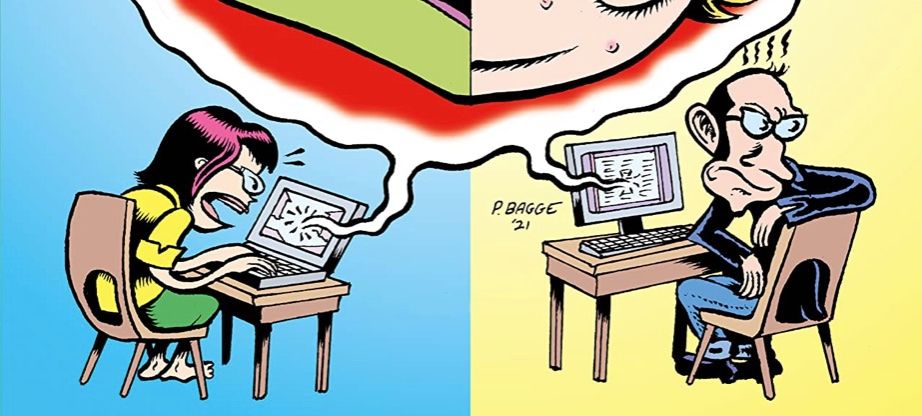
Peter Bagge probably hates the idea of Meta, Mark Zuckerberg’s vision of the future of online life. By now you’ve had to have seen the videos of it where Zuckerberg was touting an almost completely digital life, all powered by his companies' oh-so beneficial technology. You will be able to live a virtual life, dress in virtual clothes, go to virtual concerts and do everything you do in real life but in a virtual (i.e. “better” by the Zuck’s estimation) way. And Facebook or Meta or whatever they want to call themselves by then will be the center of this virtual life. Sounds great, doesn’t it?
But did you know that Second Life is still a thing? I certainly didn’t. “With thousands of virtual experiences and communities, you'll never run out of places to explore and people to meet. Music clubs, roleplaying communities, virtual cinemas, are and more,” the website promises. Around since 2003, Second Life is the original Meta, a virtual experience offering a promising substitute to the real world. But going back to the earliest days of the World Wide Web, online communities have offered that substitute for the real world, where people could craft a different identity than their IRL ones. Behind our screens, we could be someone on message boards and AOL groups that we only wished we were when dealing with people outside of the Matrix.
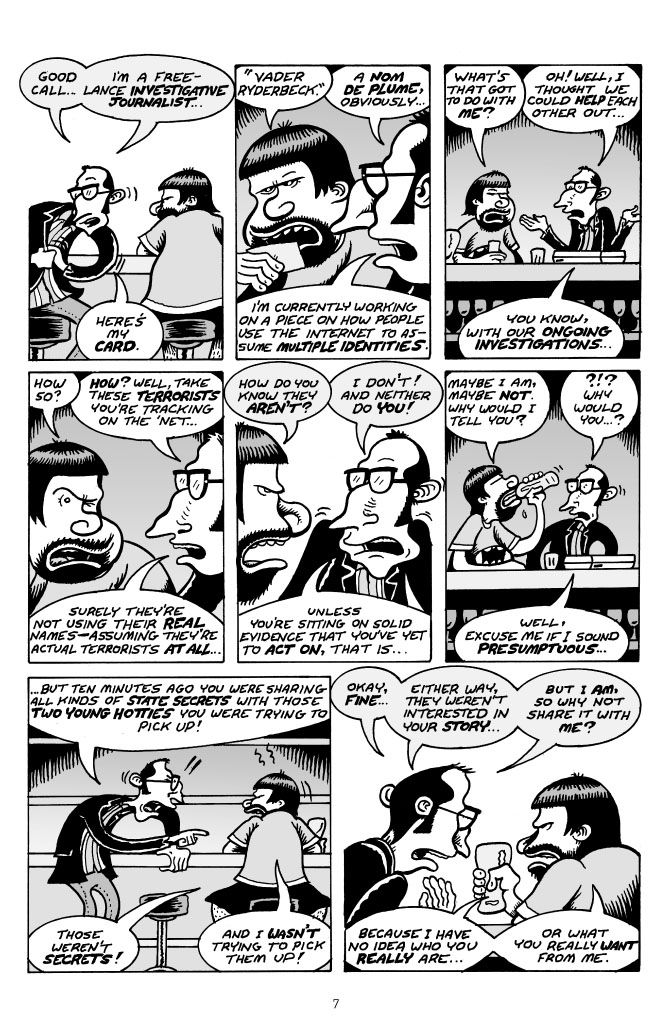
Peter Bagge’s 2010 comic Other Lives (recently republished by Fantagraphics) explores our desires to be someone other than who we are, both in a virtual setting but he recognized back then that desire is something that exists beyond the keyboard and computer screen. Vader Ryderbeck anchors this story and he’s the least online character out of everything even as he centers this story about constructed identities and the self-delusion that comes with them. A journalist who makes everyone call him “Vader” even though his name really is Vlad, Vader has built a life that’s a reaction to everything his late father tried to either teach him or force on him. In trying to renounce his own upbringing, he shapes and molds what his girlfriend and his friends see him as.
Going back to Hate and Neat Stuff, Bagge has always had a knack for tapping into the culture and showing how it brings out the worst in us. It’s not that he hates pop culture but that he hates what it does to us and what we do to continue to feed it. Other Lives explores the pop culture and cyberculture that makes us question ourselves, think we’re not good enough or who we want to be while giving us the opportunity to recraft our identity. Only it’s not complete; Bagge shows how we still are who we are and that our projected selves are at best masks that we wear to disguise who we are to the world at large and to ourselves.
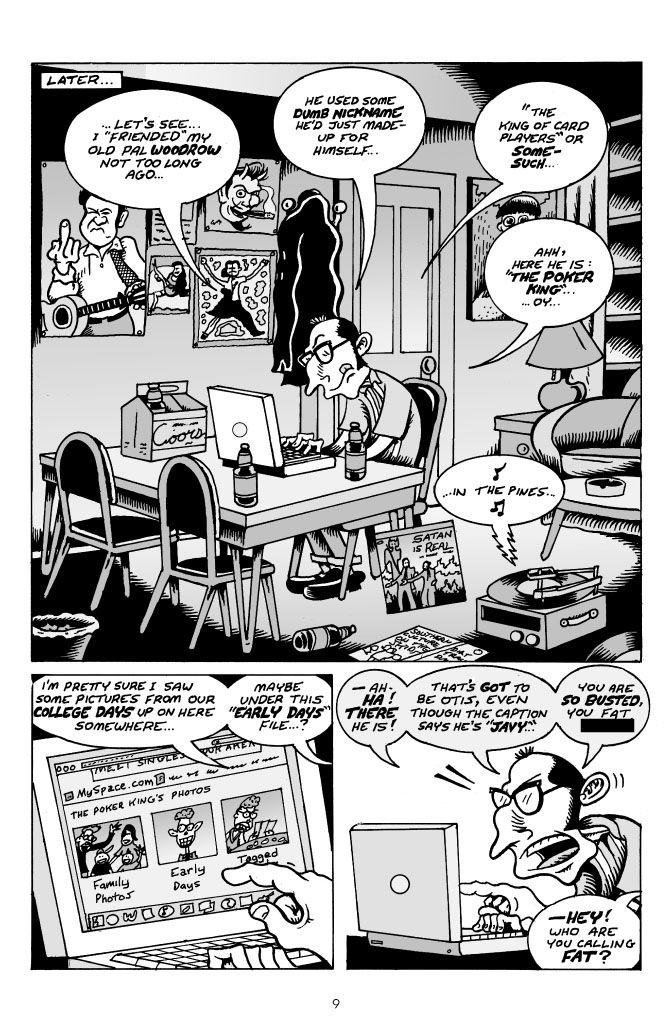
Bagge’s inimitable artwork focuses on the flaws of these people but shows how those flaws help define who they are. From Vader’s haughty attitude to his friend Woodrow’s trying-too-hard mustache, Bagge’s rubbery-limbed people wear their hearts on their sleeve. There’s very little subtext in his drawings as his cartooning tells us so much of the story and the character work. All of that work is the text of Bagge’s artwork. A student of the old underground cartoonists, particularly Robert Crumb, Bagge understands the impact his drawings have in telling his story. For instance, his artwork becomes surprisingly stilted when it enters the online world and tries to show the characters’ virtual selves; Vader’s girlfriend Ivy has actual joints and pointy elbows. There’s a certain coldness to it that reflects Bagge’s own view of the value of these online encounters. It’s fun just to stare at Bagge’s artwork to see how the characters emote and act and tell you so much about themselves.
We find the opportunity to build this second life (wording intentional) where we can be a secret spy, a fairly, or even a conqueror. Other Lives presents this group of friends and acquaintances either trying to find themselves through online experiences or trying to self-actualize what they want their image of themselves to be. Vader builds this identity of himself that’s such an argument against his father; it’s a complete reaction against his upbringing and his heritage so much so that he loses sight of what that heritage could mean for him.
It’s weird that as Vader creates this projection of self unconscious of the act, his girlfriend and friends very deliberately enter the virtual world and build this second identity there. Ivy finds a release there, a chance to rebel as well but using it more as a release than a denial of who she is. Becoming a fairy in the virtual world, she has a virtual affair with one of Vader’s friends and then goes on a virtual destructive spree. And in many ways, it doesn’t mean anything to her because she views it as a game, something separate from who she is while Woodrow, the friend, sees the virtual fling as something more real and tries to pursue it outside of the virtual world.
This is a 2010 book that still offers a real warning to us as we look into the future. Mark Zuckerberg wants us to believe in the future of these virtual worlds and selves that we can construct. Look at the Occulus commercial where two men are best buds in their online games but don’t realize that the lousy neighbor they’re yelling at is the other one. It’s supposed to be a joke, a fun little jab at how “real” the game world is and how it fosters relationships. But as the two men yell at each other through their apartment walls, you have to recognize some kind of loss in these interactions. They are online friends but are they really friends?
Bagge longs for real connections, for a personal touch in all of the relationships in his book. His idiosyncratic style and approach to the story could demonstrate some kind of hatred for the world but he’s always looking for ways to connect to his characters and his readers. Vader, Ivy, and the rest of the cast of Other Lives are not good people but they’re trying and that’s something that you always see in Bagge’s stories; this desire to be better. It’s a subtle difference from a desire to be someone else like the characters in this book are; their desire to re-establish identities is a byproduct of their desire to be better. And sometimes desire isn’t enough but a search for a true identity is the beginning of maybe being better. It’s tricky as Bagge avoids having a tidy ending to Other Lives and leaves it a bit messy, a lot like life generally is.
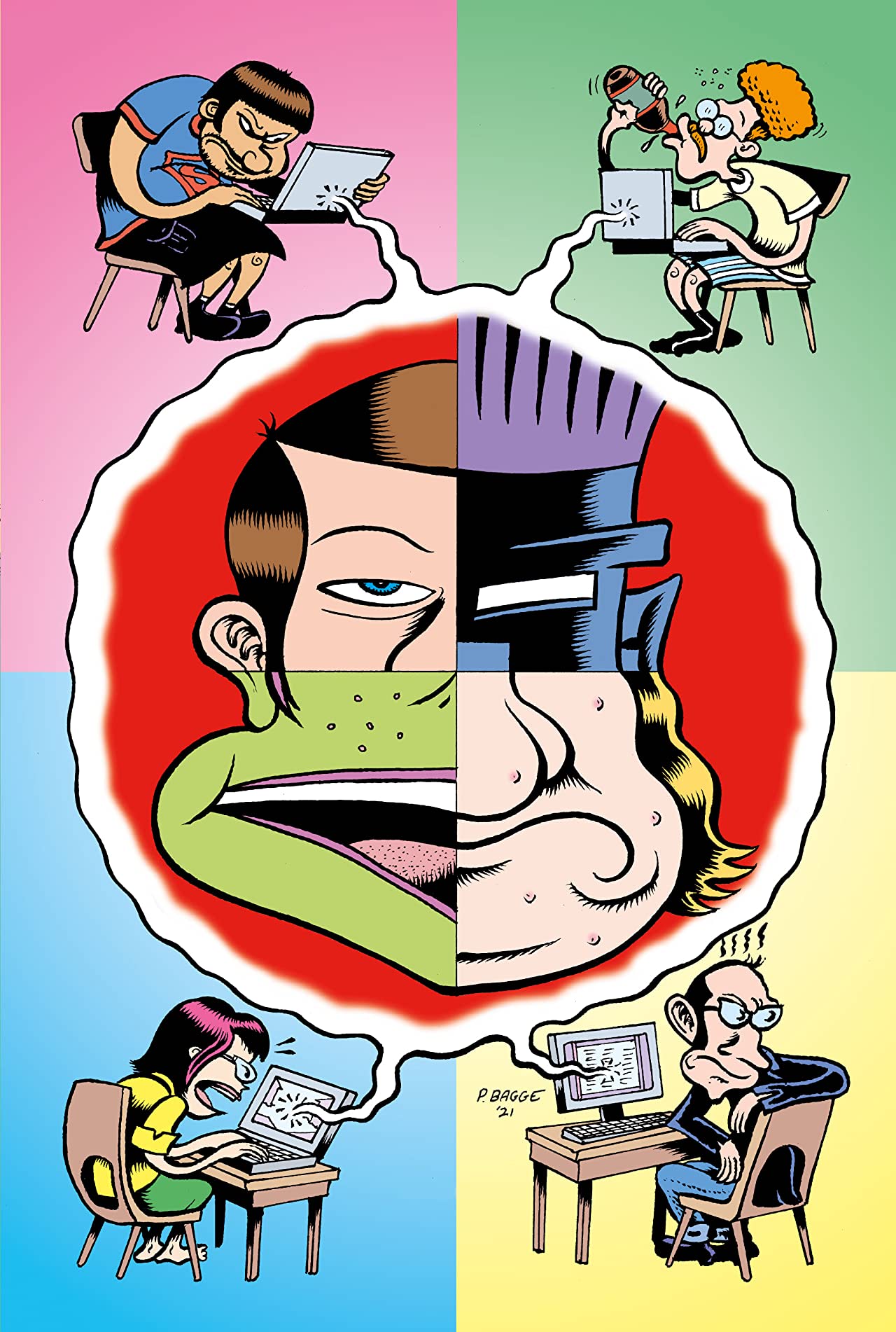


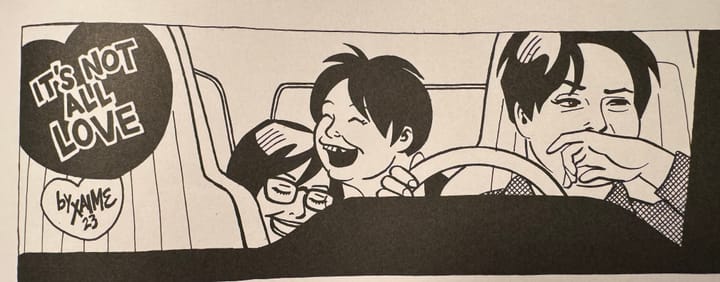
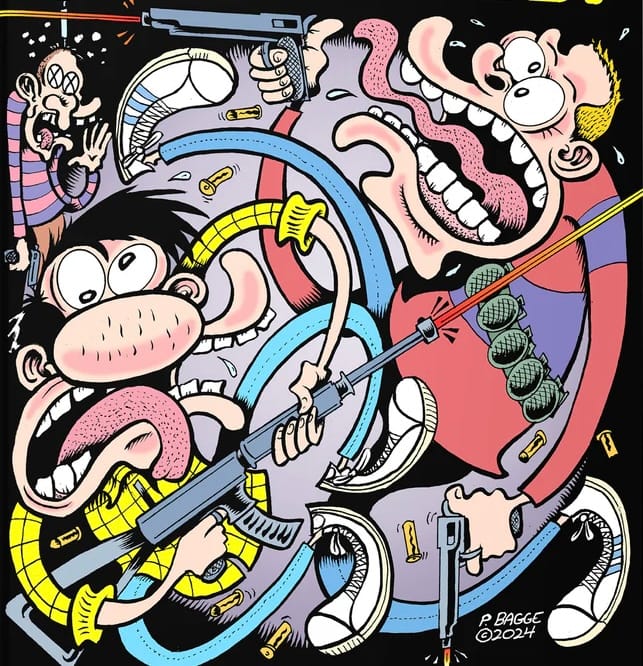
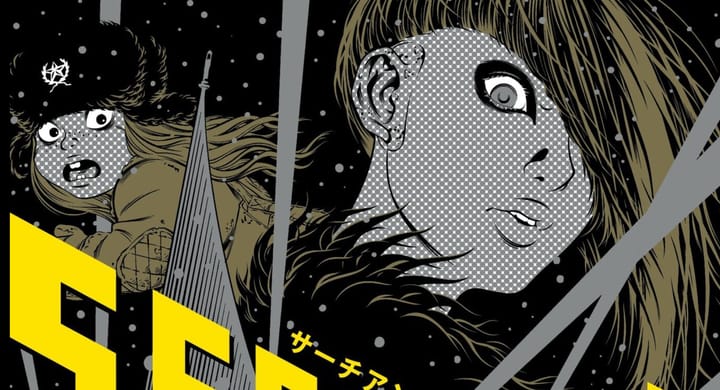
Comments ()